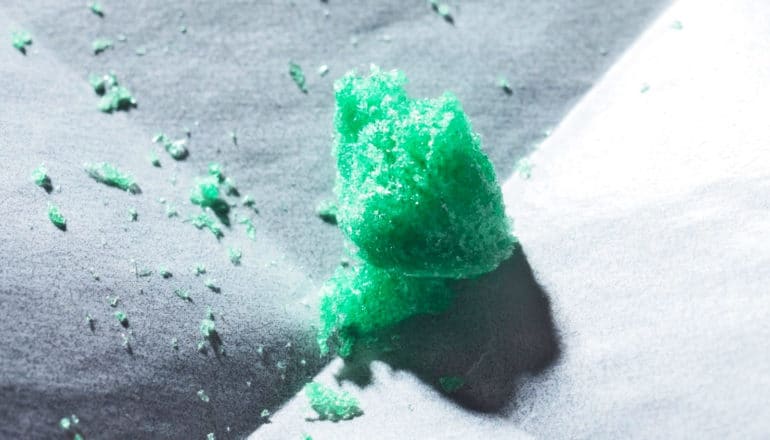
Researchers report that they have successfully freeze-dried a liposome-based liquid vaccine formula that could be developed for potential use in COVID-19 vaccines.
Freeze-drying is a method for removing water from a product. First, you freeze the item you’re trying to dehydrate, causing any water in it to become ice. Then, you remove the ice through a process called sublimation, in which ice turns directly into vapor under low pressure.
A vaccine that uses the freeze-dried liposomes is still a long way off. But if developed successfully, dehydrated doses could be shipped and stored at room temperature, eliminating logistical problems associated with some of the most popular existing vaccines for the disease.
“At the time we started this project, the first COVID-19 vaccines were just getting rolled out, and there was a lot of news about how they needed ultra-cold storage, and how that was a huge logistical challenge,” says senior author Jonathan Lovell, associate professor in biomedical engineering in the School of Engineering and Applied Sciences and the Jacobs School of Medicine and Biomedical Sciences at the University at Buffalo.
“Especially in low- and middle-income countries, it may not always be feasible to have that type of refrigeration infrastructure. So we started to look at whether we could make a thermostable COVID-19 vaccine using a liposome-based vaccine platform that we worked on previously.”
The new study focuses on a liquid injection that consists of ingredients including water; specialized liposomes carrying a synthetically produced version of the spike protein of the COVID-19 virus; and a small amount of sugar, which helps to protect the formula during the freeze-drying process.
The freeze-dried product looks a bit like mint green cotton candy.
“Upon dehydration, the formula was stable at elevated temperatures, and we showed that it can withstand room temperatures and even higher temperatures for at least a week,” says first author Moustafa Mabrouk, a biomedical engineering PhD student.
“After that, we reconstituted the formula by adding water. When we tested this in mice, it induced effective antibody responses and offered protection against the COVID-19 virus.”
Researchers are examining the specialized liposomes for potential use in vaccines against multiple diseases. Lovell originally developed the liposomes in his lab and the University at Buffalo has licensed them to POP Biotechnologies, a startup company that Lovell co-founded. (Huang is also a POP Biotechnologies employee.)
A COVID-19 vaccine candidate that relies on POP Biotechnologies’ liposome-based vaccine delivery system is in human trials in South Korea. That vaccine candidate, called EuCorVac-19, is under development by POP Biotechnologies and South Korean biotech company EuBiologics. EuCorVac-19 has slightly different ingredients from the vaccine formula studied in the current paper.
“We have not tested freeze-drying on the EuCorVac-19 vaccine,” Lovell says. “However, I think the data in this new study suggest that, in theory, the EuCorVac-19 formula may be amenable to this type of treatment to make it very thermostable, which would benefit any global deployment.”
The US National Institutes of Health, the European Union’s Horizon 2020 research and innovation program under a Marie Sklodowska-Curie grant, the CIFAR Azrieli Global Scholar Program, the Ontario Early Researcher Awards program, and the Canada Research Chairs program funded the work.
Source: University at Buffalo
The post Freeze-dried vaccine could one day be used for COVID-19 appeared first on Futurity.
from Futurity https://ift.tt/3ofpL1C
No comments:
Post a Comment